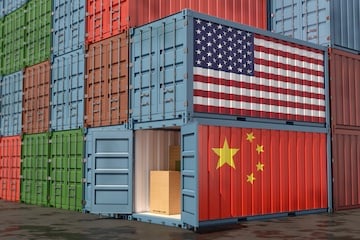Putting aside supplier selection and tariffs, returning select manufacturing to one’s own country could benefit a business and the broader domestic economy.
Reshoring is neither nationalist nor nostalgic. It is pragmatic. After decades of chasing the lowest overseas bids, many merchants are discovering the advantages of producing goods closer to home.
Walmart
Even Walmart is emphasizing U.S.-based manufacturing.
At its 12th annual Open Call event this month, Walmart invited more than 500 entrepreneurs to pitch products made, grown, or assembled in the United States. The initiative supports the company’s $350 billion, 10-year commitment to domestic sourcing.
The opportunity to sell to Walmart is like winning the lottery for many small and mid-sized manufacturers.
Walmart U.S. CEO John Furner noted during a CNBC forum last week that “investing in U.S. manufacturing and U.S. operations, sure, it’s great for business, but it’s also great for employment. It’s great for jobs. It’s great for the country, and it helps us with our supply chain being flexible and dynamic.”
Furner cited new projects such as a beef-processing facility in Olathe, Kansas, expected to create about 600 jobs, and a partnership with USAntibiotics to restore local drug production.
Walmart’s approach couples economic nationalism with supply-chain flexibility — reshoring when it strengthens resilience, yet continuing to source globally for products better produced elsewhere.
Tariffs and the Cost Equation
It’s impossible to discuss American manufacturing without acknowledging tariffs.
Walmart executives have repeatedly said that tariffs increase costs for both retailers and consumers, even as the company works to offset tariffs through scale and sourcing diversification.
Ecommerce consultant Jon Elder, who advises brands selling on Amazon and Walmart, describes the effect as “mixed.”
“Tariffs have caused multiple things to happen in the ecommerce space. I have seen a high number of brands shift production away from China to places like Vietnam and the U.S. while others have stocked up,” Elder explained.
“The brands that have stayed with China…have renegotiated with their factories, done historic bulk buys, and slightly raised prices,” said Elder, adding that “the competition is fierce [on the Amazon and Walmart marketplaces] so simply raising prices hasn’t been an option.”
Elder’s observation complements Furner’s remarks on adapting tactically rather than ideologically. Tariffs may be government tools, but in practice, they are supply-chain variables, prompting merchants to reconsider where and how they make their goods.
Reshoring
Moving production to the U.S. leads directly to reshoring — returning manufacturing to domestic soil.
Recent wins for American producers — including Nucor (steel), Cleveland-Cliffs Inc. (metals), Whirlpool Corporation (appliances), and Vaughan-Bassett Furniture Company (home goods) — illustrate renewed industrial investment.
Meanwhile, Furner’s framing aligns with this momentum. Domestic manufacturing is not merely patriotic; it is also a practical investment in speed, quality, and demand.
Short lead time. Proximity can shorten shipping windows. Faster turnaround reduces capital tied up in inventory and improves cash flow.
Better quality control. Working with domestic manufacturers simplifies quality control and communication. Problems are resolved in days and require no overseas offices or third-party inspectors.
Shopper demand. “Made in the U.S.A.” remains a meaningful label for many American shoppers. It signals reliability and accountability. Domestic origin can enhance storytelling, strengthen brand authenticity, and justify a modest premium.
Balance, not Retreat
Reshoring is about balance, not retreating from global commerce.
The most sustainable strategy likely pairs domestic production for critical or fast-moving goods with global sourcing for bulk or specialized categories.
Walmart’s mix of U.S. investment and international flexibility illustrates the point. Ecommerce SMBs could follow the example and turn reshoring from a buzzword into a competitive advantage grounded in control, quality, and customer trust.





